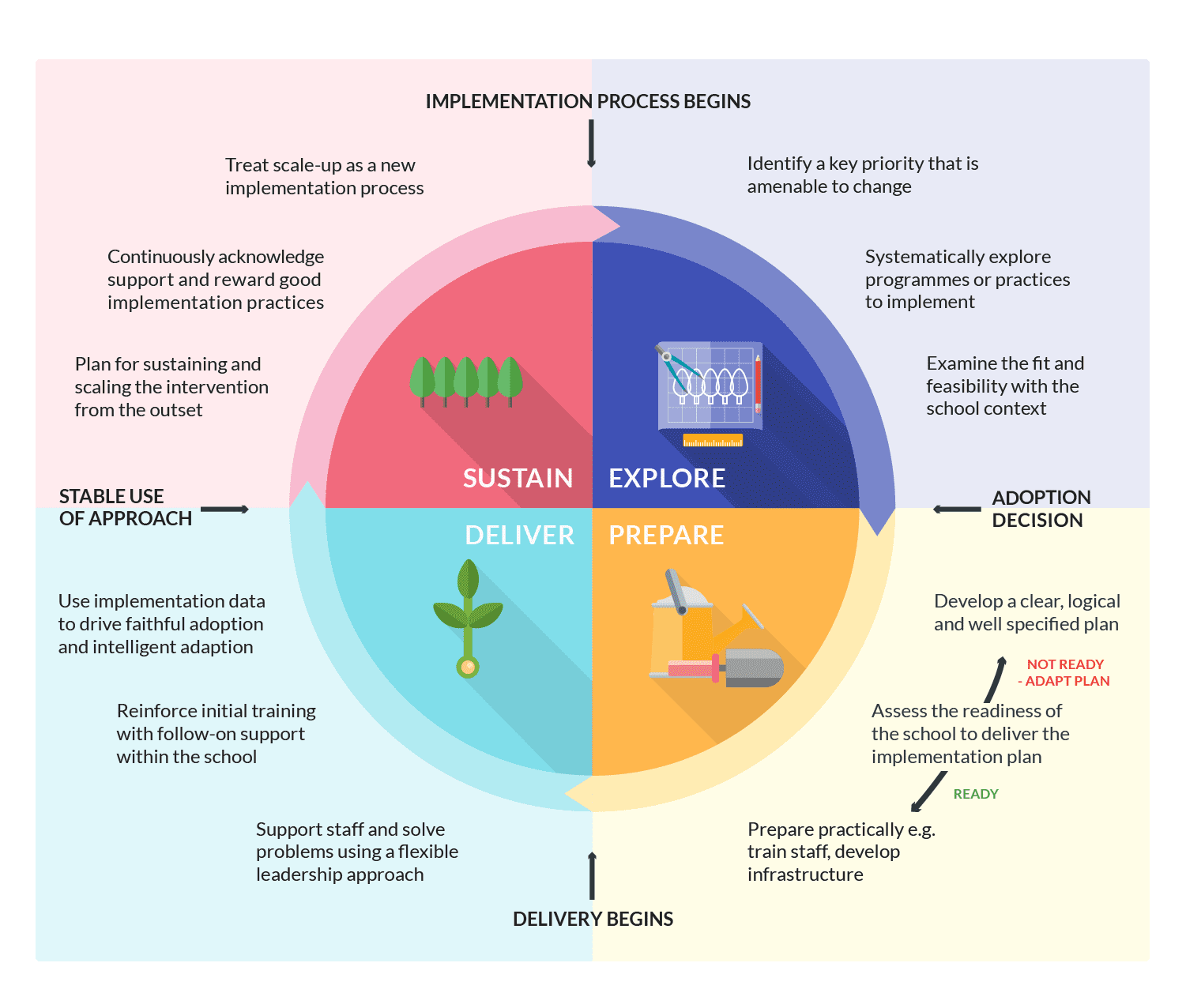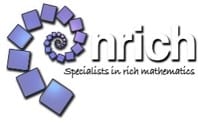Inspiring Innovation and Impact
Active research in schools engages all educators in improving their own practice which drives school improvement and leads to greater outcomes for the whole school community.
Purpose:
We (King Edwin Primary School) have placed ‘Research and Development’ (R&D) at the very core of our schools vision and work because we believe that research equips teachers to conduct their own investigations, exploring the impact of positive and negative effects of practices in education.
King Edwin has always viewed research and development as a priority and fundamental to developing an evidence base to support developments across the school – building the capacity for a self-improving education system.
Mr Bandy (Leader of Teaching, Learning and Research) states:
“We appreciate research and development as an essential driver, supporting the development of an evidence base for CPD programmes that we’re developing and supporting, so that we can be sure that things have been trialed, tested and piloted with the children. This way, we have evidence that can be shared and provide a prosperous resource to draw on when leading CPD programmes and when considering leadership development.”[/vc_column_text][/vc_column][/vc_row]
What the Research suggests:
- research-rich environments are indeed best high performing education systems (internationally)
- if teachers want to be effective, teachers and teacher educators need to engage with research – keep up to date with recent academic developments in their subject and in education overall
- teachers and teacher educators need the capacity, motivation, confidence and opportunities to engage with and in research
- research cannot just stop after the initial teacher education – but should be sustained throughout their careers so that enquiry is embedded in the professional lives of teachers and schools and become normal way of teaching and learning
(BERA)
Vision & Principles:
Teaching and learning:
In a research-rich, self-improving education system:
- Every learner is entitled to teaching that is informed by the latest relevant research.
- Every teacher is entitled to work in a research-rich environment that supports the development of their research literacy, and offers access to facilities and resources (both on-site and online) that support sustained engagement with and in research.
Teachers’ professional identity and practice:
In a research-rich, self-improving education system:
- Teachers share a common responsibility for the continuous development of their research literacy. This informs all aspects of their professional practice and is written into initial and continuing teacher education programmes, standards, and in registration and licensing frameworks.
- During the course of qualifying and throughout their careers, teachers have multiple opportunities to engage in research and enquiry, collaborating with colleagues in other schools of the wider research community.
School leadership:
In a research-rich, self-improving education system:
- Research literacy has a prominent place in development programmes for governors, for parents’ organisations and for senior and middle leaders, such that the development of research-rich school and college environments is seen as a key leadership responsibility.
- The levers that hold schools and colleges – and other educational institutions and agencies – to account, notably inspection frameworks, explicitly recognise the importance of research literacy to teachers’ professional identity and practice. They also see research literacy as an important prerequisite for school improvement and a research-rich culture as a key feature of any school designated ‘outstanding’.

Education Endowment Foundation (EEF):
At King Edwin Primary School, we understand the important role the Education Endowment Foundation (EEF) plays in national research. The Education Endowment Foundation (EEF) is an independent charity dedicated to breaking the link between family income and educational achievement, providing vital guidance reports for such research and development initiatives.
Implementation:
‘Implementation – the process of putting a decision or plan into effect.’
Oxford English Dictionary
‘Vision without implementation is hallucination.’
Thomas Edison
Schools are learning organisations. They continuously strive to do better for the children and young people in their charge. In doing so, they try new things, seek to learn from those experiences, and work to adopt and embed the practices that work best.
There are legitimate barriers to implementing effectively in schools – the bombardment of new ideas and initiatives, limited time and resources, and the pressure to yield quick results, to name just a few. Nevertheless, this guidance report shows a lot can be achieved with careful thought, planning, and delivery using existing resources and structures. It is about making the implicit explicit, providing clarity and purpose to existing processes, and reframing what you are already doing, rather than bolting on a whole new set of procedures.
(Education Endowment Foundation, Implementation Guidance report, 2019)

Projects Trialed in Schools:
Here are just some of the projects we have been involved in…
Abracadabra (ABRA) is an online toolkit composed of phonics, fluency and comprehension activities based around a series of age-appropriate texts. The trial assesses a 20 week programme of lesson plans using the ABRA activities (referred to here as the ICT programme). The trial also assesses the impact of an offline, paper version of the same programme (referred to here at the non-ICT programme).
The study was funded by the Education Endowment Foundation and Nominet Trust as part of a funding round focusing on the use of digital technology to improve outcomes for disadvantaged children.
The onebillion programme consists of two apps that are designed to support the acquisition of basic mathematical skills for pupils aged 3-6. This project tested the impact of the apps on pupils in year 1 who had been identified by their teachers as being in the bottom half of the class in mathematics. The apps were developed by onebillion, a not-for-profit organisation. In this project, teaching assistants were trained to use the apps by a team from the University of Nottingham.

An independent charity founded over 35 years ago, the National Association for Able Children in Education (NACE) works with member schools, education leaders and practitioners to improve provision for more able learners, driving whole-school improvement and raising achievement for all.
SOLO Taxonomy (structure of observed learning outcomes) provides a simple, reliable and robust model for three levels of understanding – surface deep and conceptual
(Biggs and Collis 1982)
NACE/nrich Ambassador Project
NRICH is working with NACE to expand the network of NRICH Ambassadors, who support the NRICH team by sharing their knowledge of NRICH resources within their settings and local area.
Our three day Ambassadors programme is designed to allow delegates time to explore the vision behind the vast array of NRICH materials and ways to maximise their potential in the clasroom. After the programme has been completed, Ambassadors should feel confident using NRICH resources in their settings as well as supporting their colleagues too.
If you require more information about how your school could receive nrich CPD from our resident Ambassador (Mr Bandy), please contact our office for more details.



